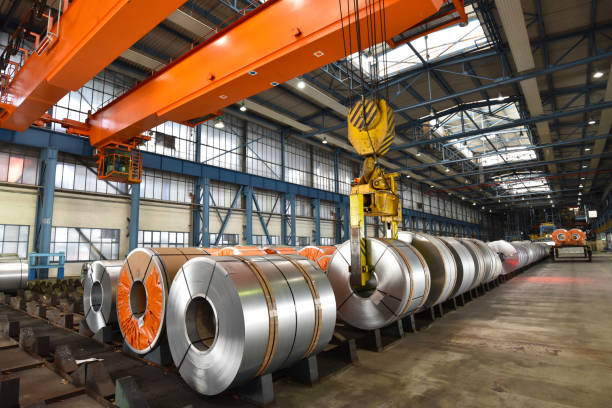European steelmakers are pressing the European Commission to impose US-style tariffs on steel imports, warning that the industry could collapse without stronger trade protection.
According to The Financial Times, the pressure comes as the sector struggles with cheap imports from China, high energy prices, and the impact of US President Donald Trump’s decision earlier this year to impose 50% tariffs on European steel exports to America.
Rising Imports and Weak Demand
Henne did not suggest a specific tariff level but warned that imports were rising even as demand in Europe remained weak. In 2024, the EU imported 28 million tonnes of steel, equal to a quarter of total sales, according to industry body Eurofer. That figure is double the amount imported in 2012/13, when China became a major global exporter.
Eurofer has also warned that the sector is likely to lose most of the 3.8 million tonnes it exports to the US annually because of Trump’s tariffs.
France, along with 10 other EU member states including Italy and Spain, has called for a 50% duty beyond a certain quota. They also support a “melted and poured” rule to prevent Chinese steel from being routed through third countries to avoid duties.
Industry in Decline
The EU steel industry has suffered heavy losses in recent years. Eurofer said that 18,000 jobs were cut in 2024 alone, adding to the 90,000 lost since 2008.
Thyssenkrupp, once a symbol of Germany’s industrial might, is undergoing a difficult restructuring. The company plans to cut production capacity at its steelworks and reduce its workforce by 11,000.
“Do we want to produce cars in Europe? Yes or no? Do we want to produce them with European steel? Yes or no? And if that is what we want… then we need to take some decisions,” Henne said, underlining steel’s importance for industries like car manufacturing.
Brussels’ Next Steps
European Commission President Ursula von der Leyen has made the steel sector a priority in efforts to tackle the bloc’s wider economic decline.
The commission is expected to introduce a new safeguard measure this month but has not yet given details. Olof Gill, the commission’s deputy chief spokesperson, said a regulation limiting the amount of steel that can be imported into the EU would be adopted by the end of the quarter.
Talks with the US on tariff exemptions or a quota system are continuing, but steelmakers remain pessimistic. Eurofer wrote to von der Leyen last month, stating:
“It is highly doubtful that any [tariff rate quota] or significant exemptions will be granted by the US in the near future, if at all.”
The trade body also urged Brussels to create duty-free quotas for products needed in the EU but apply strict tariffs beyond those levels to protect European producers.
A Balancing Act for Europe
The European Commission faces a difficult choice. On one hand, it must protect its steel industry from collapsing under cheap imports and the fallout of US tariffs. On the other, any move to impose higher tariffs risks trade tensions and could raise costs for industries that depend on steel, such as carmaking and construction.
The coming months will reveal whether Brussels can strike the right balance between safeguarding jobs and keeping industries competitive in a global market that is already oversupplied with steel.


